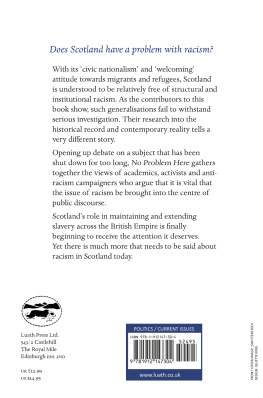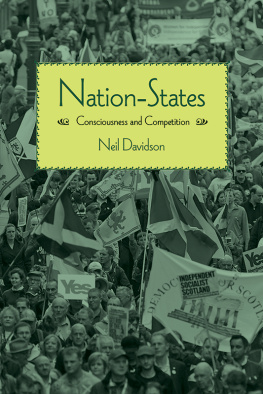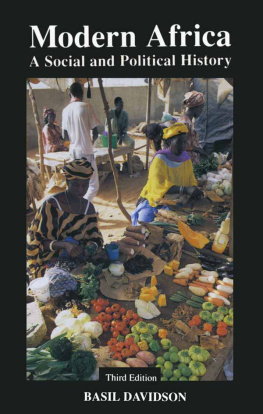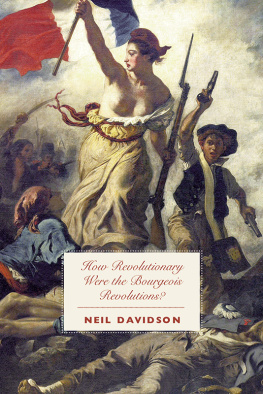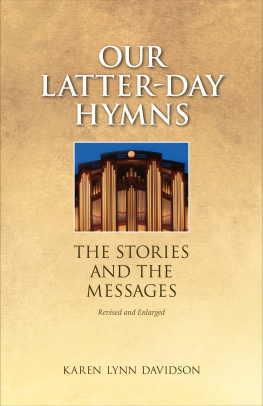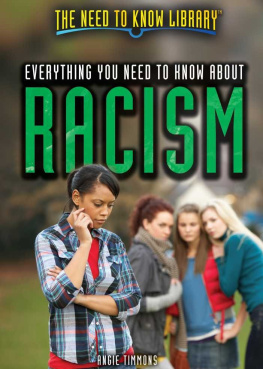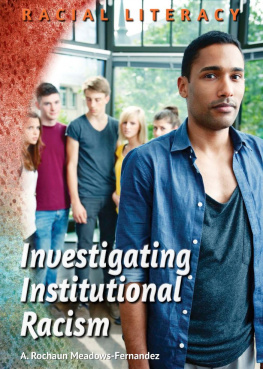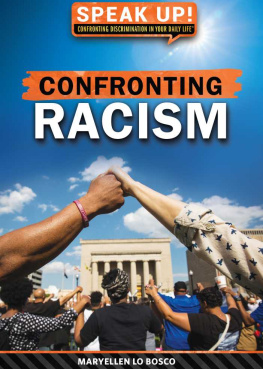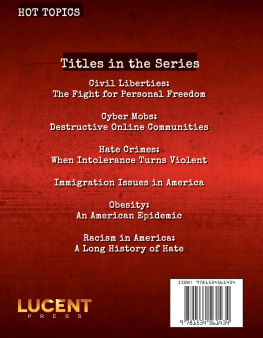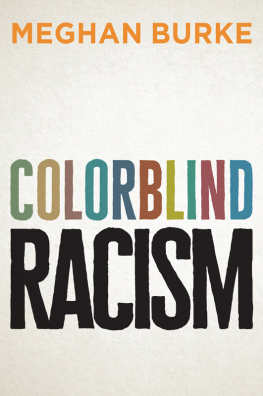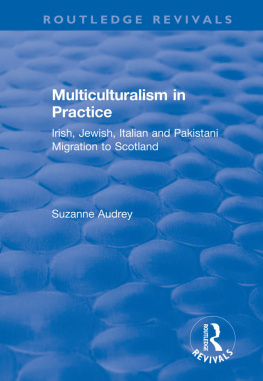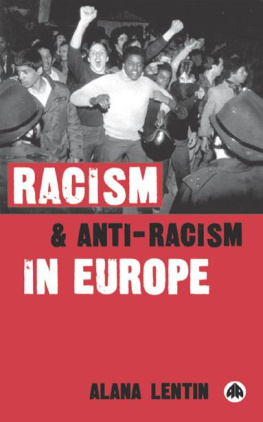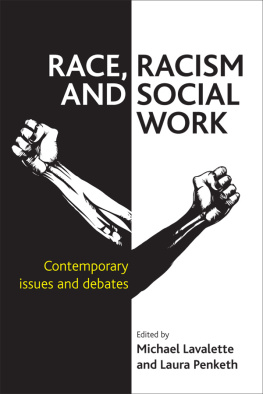

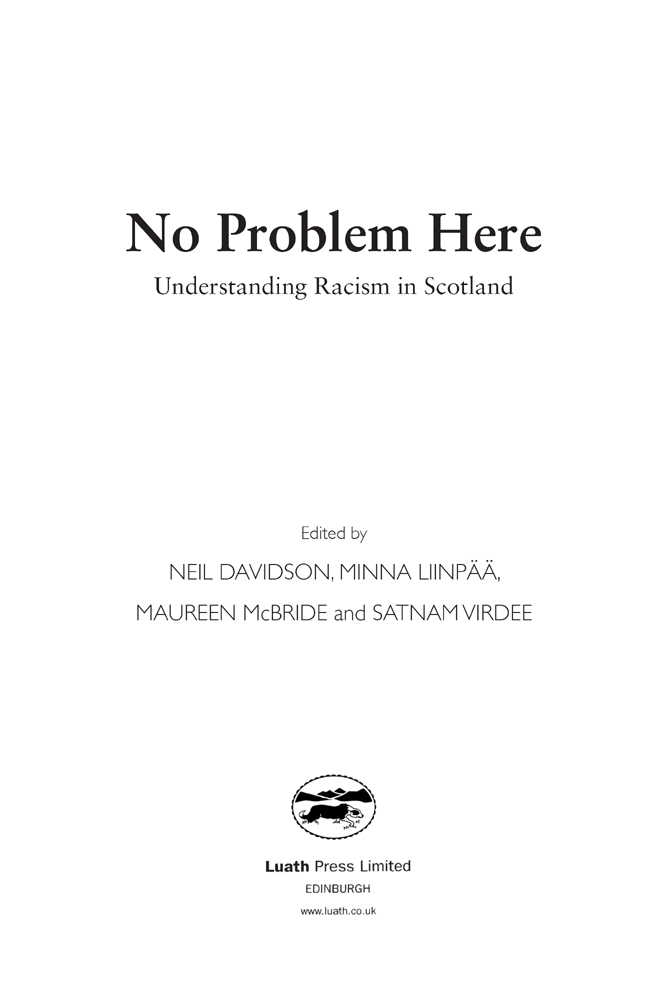
First published 2018
ISBN : 978-1-912147-30-4
The authors right to be identified as the authors of this book under the Copyright, Designs and Patents Act 1988 has been asserted.
The paper used in this book is recyclable. It is made from low chlorine pulps produced in a low energy, low emission manner from renewable forests.
Printed and bound by Bell & Bain Ltd, Glasgow
Typeset in 11 point Sabon by Lapiz
the contributors
Acknowledgements
THERE ARE MANY PEOPLE whom t he editors would like to thank. First, all of the contributors for their enthusiasm for this project, as well as for their patience as the book was being finalised. For the chapters which are based on empirical research, we are extremely grateful to all participants who gave up their time to engage in their respective projects. We hope that we have done you justice.
As the idea for this collection came about following a conference entitled Racism: From the Labour Movement to the Far-Right held at the University of Glasgow on 5-6 September 2014, we would like to thank everybody who helped with the organising of the conference and all who attended and participated in discussions. Your insights undoubtedly helped to shape our thinking and our approach to the collection. We are extremely grateful to the Economic and Social Research Council (award number ES/K 002198/1) and the then Dean of Research of the College of Social Sciences the late Andy Furlong for the generous financial assistance they provided to hold the conference.
Neil Davidson
Minna Liinp
Maureen McBride
Satnam Virdee
Introduction: Understanding Racism in Scotland
Neil Davidson and Satnam Virdee
IN CONTRAST TO ENGLAND , there has been relatively little public discussion about the historical or contemporaneous structuring power of racism in Scotland. Over many decades, this silence has come to be interpreted as an indication of its absence by much of the Scottish elite, including its political parties, helping to consolidate a now powerful myth that there is no problem here, that in that memorable Scottish phrase Were a Jock Tamsons bairns. We contend that this narrative of an absent racism in Scottish history has become even more entrenched in the course of recent developments (such as the rise of the SNP and the independence referendum) because it is able to nest so comfortably within the new common sense of Scottish politics, the dominant story that has been forged, by the SNP and others that the Scots are in some sense different from the English more egalitarian, more likely to place an emphasis on collectivism over individualism and on government intervention over self-reliance. And the regular public statements made by successive First Ministers welcoming increased migration in contrast to the increasingly shrill pronouncements emanating from party leaders in Westminster seem only to have further reinforced the myth that Scotland does not have a serious racism problem.
On one level, such elite rhetoric is welcome, particularly when contrasted to what is unfolding today across large parts of Europe in relation to the refugee crisis. However, this mainly SNP -led re-imagining of Scotland as different (and arguably more progressive) than England has been crafted in such a way that the historical role which Scotland played in Atlantic slavery and colonial conquest has been consigned to what George Orwell referred to in Nineteen-Eighty Four as the memory hole, thereby giving the impression that it never happened. Or, on those rare occasions when such episodes are forced out into the open, they are implicitly projected back onto a reactionary British/English establishment. This suggests not only a degree of intellectual dishonesty but an unwillingness to confront the legacies of empire and racism in which Scotland is implicated.
Further, those broadly sympathetic public statements made by elite politicians in Scotland about migration and the new Scots are too often taken at face value including by parts of the Left and this carries with it the danger of underestimating and thereby disabling the contemporary struggle against racism that is required. It is crucial to remain alive to the disjuncture between elite discourse on migration and the lived reality of racialised minorities in Scotland. Everyday racism remains a deeply structuring force distorting the lives of those we know as the black and brown Scots.
From racist harassment in the community, to systematic discrimination in the workplace, these so-called new Scots remain a class apart one that is seen as somehow not quite Scottish. And on occasions just as in England this failure to imagine this group of Scots as truly Scottish, as unhyphenated Scots can lead to violence and sometimes murder. From the racist killing of Surjit Singh Chhokar just prior to the advent of devolution in 1998 a murder which required three trials before a conviction was finally achieved in October 2016 to the death of 31-year-old Sheku Bayoh while being restrained by 15 police officers in Kirkcaldy during May 2015, racism remains a significant on-going problem in Scottish society, irrespective of the other more progressive transformations that are currently on-going.
In this volume, we wish to dig beneath the conventional race-blind narratives that Scotland and its elites have crafted over many years, to perhaps unsettle them a little, so that we might begin to open up a space for writing a historical sociology of racism in Scotland, a historical sociology that might help us to uncover and perhaps finally come to terms with this hitherto occluded underside of Scottish history? The essays that follow were first presented at an international conference organised by the editors and held at the University of Glasgow in September 2014 (Davidson, Liinp, McBride and Virdee, 2015). That event successfully brought together academics and activists of various sorts although we are obviously aware that these are not mutually exclusive categories to discuss racism in Scotland and related issues. The authors included here are about half of those who gave papers on the day and represent the full range of approaches taken by the speakers. The book consists of three parts.
, Allan Armstrong shifts the focus from Scottish to British identity, and the way in which versions of the latter can be found virtually across the spectrum of political opinion, including even some aspects of Scottish nationalism. In what is the most directly political intervention here, Armstrong links the notion of Britishness as an identity to the political project of Unionism and defence of the UK state from the era of Home Rule all round to the present.
, Alex Law is as sceptical about the notion of sectarianism as Slaven and McBride, but from a different perspective. In effect, Law argues that, whatever may have been historically the case, in contemporary Scotland sectarianism functions as the basis for a classic middle-class moral panic, focused on the behaviour of male, working class football fans, who require to be subjected, not merely to Eliass civilising process, but to a veritable civilising offensive embodied in the Offensive Behaviour at Football and Threatening Communications (Scotland) Act (2012).
Whether or not the type of racism directed at people of Irish Catholic descent is now entirely historical in nature, it is clear that other racisms are very much present in Scottish society. are both the work of individuals active in the Coalition for Racial Equality and Rights ( CRER ), with Carol Young focusing on the difficulties of achieving racial equality in the public sector and Jatin Haria dealing with the effects of racism on access to employment.
Next page
